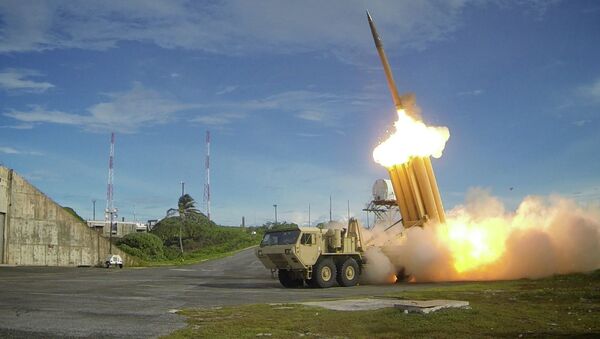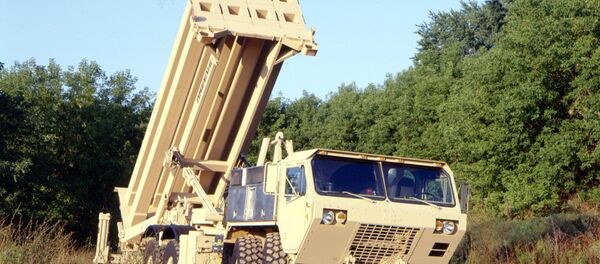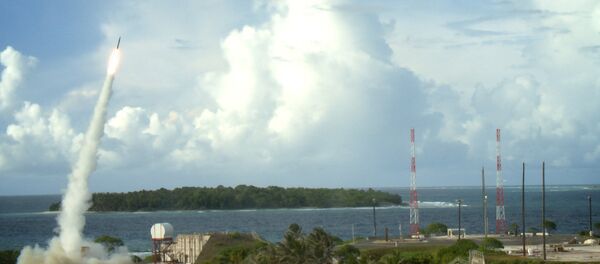The missiles will be intercepted with the help of the THAAD system itself, which is deployed in connection with North Korea's ongoing nuclear tests.
According to Han Min-goo, despite the threats from China and Russia regarding possible missile strikes, the THAAD system is designed to protect South Korea's security.
Commenting on the matter, Russian military expert Vladimir Yevseyev told Sputnik that an argument about the validity of placing THAAD in South Korea for security purposes is neither realistic nor suitable.
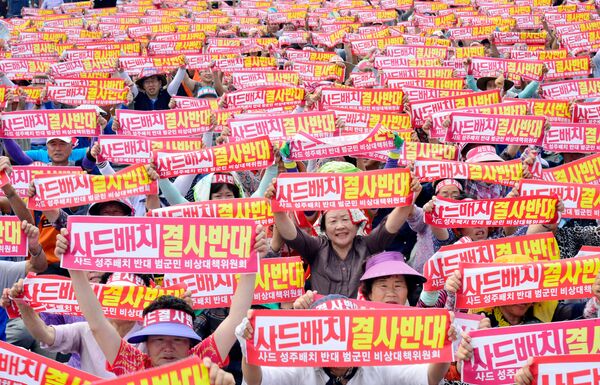
"It is absolutely clear that Russia is not going to fire at South Korea. But even if we only hypothetically imagine that it will decide to do so, it remains to be seen whether THAAD will be capable of intercepting Russian missiles", according to him.
"But the main thing is that THAAD, which will be deployed on South Korean soil, is not designed to protect the South Korean population. The THAAD system is primarily aimed at protecting US military facilities on the Korean Peninsula," he said.
Earlier this month, South Korean President Park Geun-hye told Sputnik that Seoul is not planning to use THAAD against Russia or other third states and is ready to provide extra clarifications if necessary.
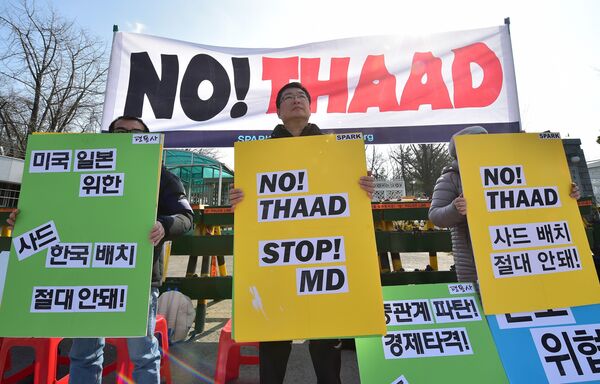
Asked about the reason for Seoul's unexpected about-face and the current bellicose rhetoric, Yevseyev pointed out a whole array of major factors, including the fact that the United States has significant influence on South Korea, as compared to Japan, for example.
"Seoul's readiness to deploy the US missile defense shows that it is more and more involved in the implementation of US policy in the Asia-Pacific region. As for Han Min-goo's statement, I don't rule out that it was made under American pressure, which may mean that the US will support South Korea's sanctions against Pyongyang in exchange for its anti-Russian rhetoric," he said.
Yevseyev also suggested that Han Min-goo's bellicose rhetoric can be explained by what he described as "an active rapprochement between Russia and China which comes amid deteriorating relations between Seoul and Beijing".
Last but not least is "a very unstable position of President Park Geun-hye, who is now being pressurized by conservative politicians and whose current policy starts to resemble right-wing political moves by the former South Korean President, according to Yevseyev.
"In any case, it is safe to say that the South Korean Defense Minister's retaliatory rhetoric is unlikely to improve the current situation on the Korean Peninsula," Yevseyev concluded.
Opponents of the missile defense system have reportedly voiced health concerns over the system's powerful radar, as well as the potential danger of being targeted while living in proximity of THAAD.
Seoul and Washington agreed to install the THAAD system in July. The system is designed to intercept short, medium and intermediate ballistic range missiles as they are incoming. Its deployment to Seoul has caused concerns in North Korea, as well as China and Russia.

